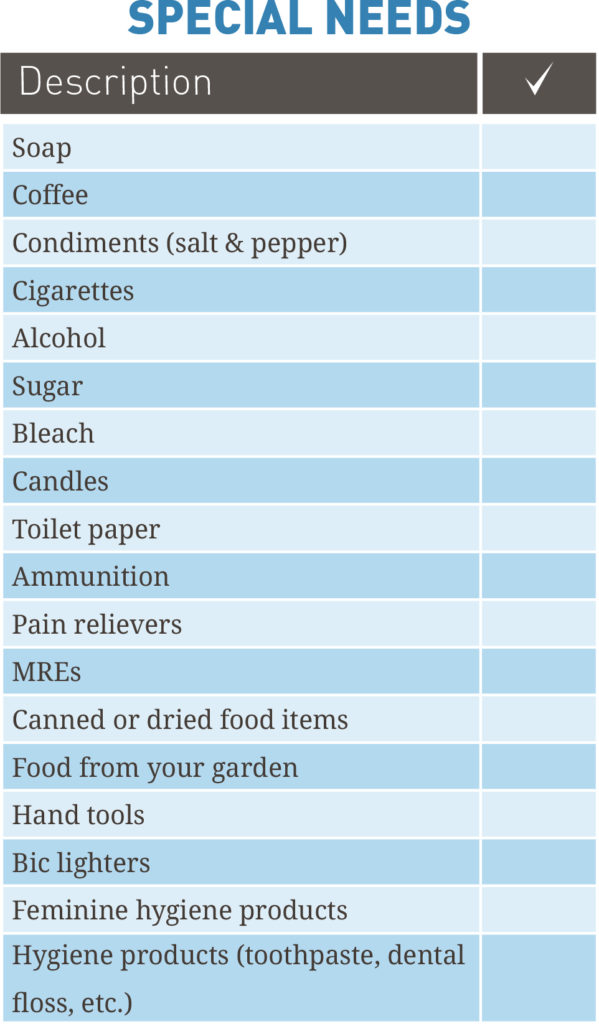BARTERING FOR SURVIVAL
Most urban Americans have never bartered, or have they? If you have ever been to a flea market then you have been a patron of the barter system. If when you were younger you agreed to do your brother or sister’s chore in return for yours, or perhaps you offered to do their chore for a part of their allowance, you have effectively completed a barter transaction.
Bartering in its most simple form is the exchange of goods or services between persons without the use of money. During a disaster, bartering can be a useful skill when supplies get low and cash isn’t worth the paper it’s printed on.
Of course, some supplies are more important than others. Food and water top the bartering list. However, there are other items that you can barter with or for, depending on your need. Knowing the most valuable bartering items can help you with your planning efforts. Maybe a carton of soap really is worth storing!
Following is a list of items commonly used in bartering activities after a disaster. However, in theory you can barter for and with just about anything in your survival storehouse.
Remember, just because an item has little or no value to you doesn’t mean that it will not be a highly sought after prize to another person. Often, you can barter with items that have no value to you, but will net you what you need.
That concept instantly turns otherwise useless barter items into prized commodities. You may not smoke, but the man with the matches you need just might like the pack of cigarettes that Uncle Henry left at your house a few weeks before the disaster. The cigarettes have no value to you, but they do to the other man.
Knowing the items people will most likely need and want means you can stock up on them, even if you don’t want or need them for your own personal use. It’s like having currency in the bank.


